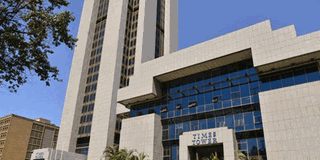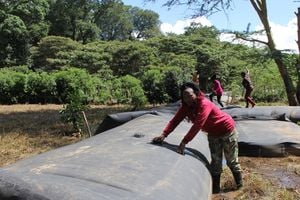Seek growth within storm

Times Tower, the Kenya Revenue Authority headquarters in Nairobi. Tax reforms and policies will ensure even small-scale farmers and businesses and pastoralists pay taxes. With more taxes, we become self-dependent.
In about six months, the first rounds of payments for monthly fuel, $3.6 billion (Sh486 billion) will fall due. Right now, the counties need Sh125 billion in allocations for January to March.
Kenya is not alone in these challenges and there are fears of a global financial recession with disruptions as in 2007/2008 and the 1930s Great Depression and the post-Covid-19 pandemic period. But the financial perfect storm and crisis present an opportunity to address and change the trajectory of development. The word ‘crisis’ in the Chinese language has two components: Danger and opportunity.
Three things are needed to turn the crisis into an opportunity. First, lessons from the Keynesian principles, prescribe the need to utilise government spending to spur local business and the economy. The national and county governments should come up with more public spending akin to US President Roosevelt’s The New Deal in 1933-1939.
This was a set of programmes and projects, public works, financial reforms and regulations that supported farmers, the elderly, youth and unemployed persons. They focused on three Rs: Relief to the unemployed and the poor; recovery of the economy to normal; and reform of the economy to avoid the recurrence of the depression (financial crisis in our case).
Enhanced public spending will increase employment opportunities and raise taxes.
Secondly, Keynes advocated tax cuts to lower the cost of energy and doing business. Tax reforms and policies can encourage more collections, disclosures and inclusion in taxation. The “2022 Economic Survey” shows there are 18.3 million job holders in Kenya—with only 2.9 per cent formal and tax-paying.
Tax reforms and policies will ensure even small-scale farmers and businesses and pastoralists pay taxes. With more taxes, we become self-dependent.
Thirdly, there is a need to implement well-structured, ethically sound and production-linked public-private partnership (PPP) programmes and projects that are accountable and transparent to ensure major projects that support the economy take off.
Dr Giti, PhD, is an urban management, public-private partnerships (PPPs) and environment specialist. [email protected]. @danielgiti





